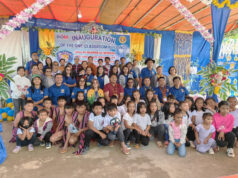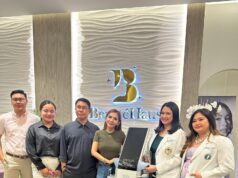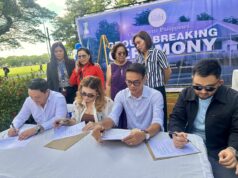ON NOVEMBER 26, 1862, Mariano Dacanay, a famous Ilokano priest who titled Dr. Jose Rizal’s farewell poem as “Mi Ultimo Adios” was born in Bacnotan, La Union.
Dacanay, also a noted translator of religious works, had received the poem of Rizal while he was in jail in September 1896 for suspicion of Masonic leanings and cooperation with the Katipunan. He was found innocent and a year later was released from jail.
Accordingly, in the afternoon of December 29, 1896, a day before his execution, Rizal was visited by his mother, Teodora Alonzo, sisters Lucia, Josefa, Trinidad, Maria and Narcisa, and two nephews.
When they took their leave, Rizal told Trinidad that there is something in the small alcohol stove. The stove was given to Narcisa by the guard when the party was about to leave and board their carriage in the courtyard. Rizal used the stove to light the room and to be able to write the poem and his other parting words.
At home, the Rizal ladies recovered from the stove a folded paper. On it was written an unsigned, untitled and undated poem of 14 five-line stanzas. The Rizals reproduced copies of the poem and sent them to Rizal’s friends in the country and abroad.
As Rizal did not inscribe a title to his poem, his friend and fellow reformist, Mariano Ponce, in 1897, titled it “Mi Último Pensamiento” in the copies he distributed, but this did not catch much attention. Hence, Fr. Mariano Dacanay, who also had a copy of the poem while a prisoner in Bilibid (jail), published it in the first issue of La Independencia on September 25, 1898 with the title “Ultimo Adios.”
Thus Rizal’s untitled, undated and unsigned last poem became popularly known as “Ultimo Adios,” or “Mi Ultimo Adios.”
The poem, which became internationally renowned, had political impact, as this was the same poem United States Representative Henry Cooper (who was lobbying for management of Philippine Affairs) recited before the U.S. House of Representatives.
The Philippines was perceived then as a community of “barbarians” incapable of self-government. Realizing the nobility of the author, Cooper’s fellow congressmen enacted the Philippine Bill of 1902 enabling self-government for the country, although relative complete autonomy would not be granted until 1946.




